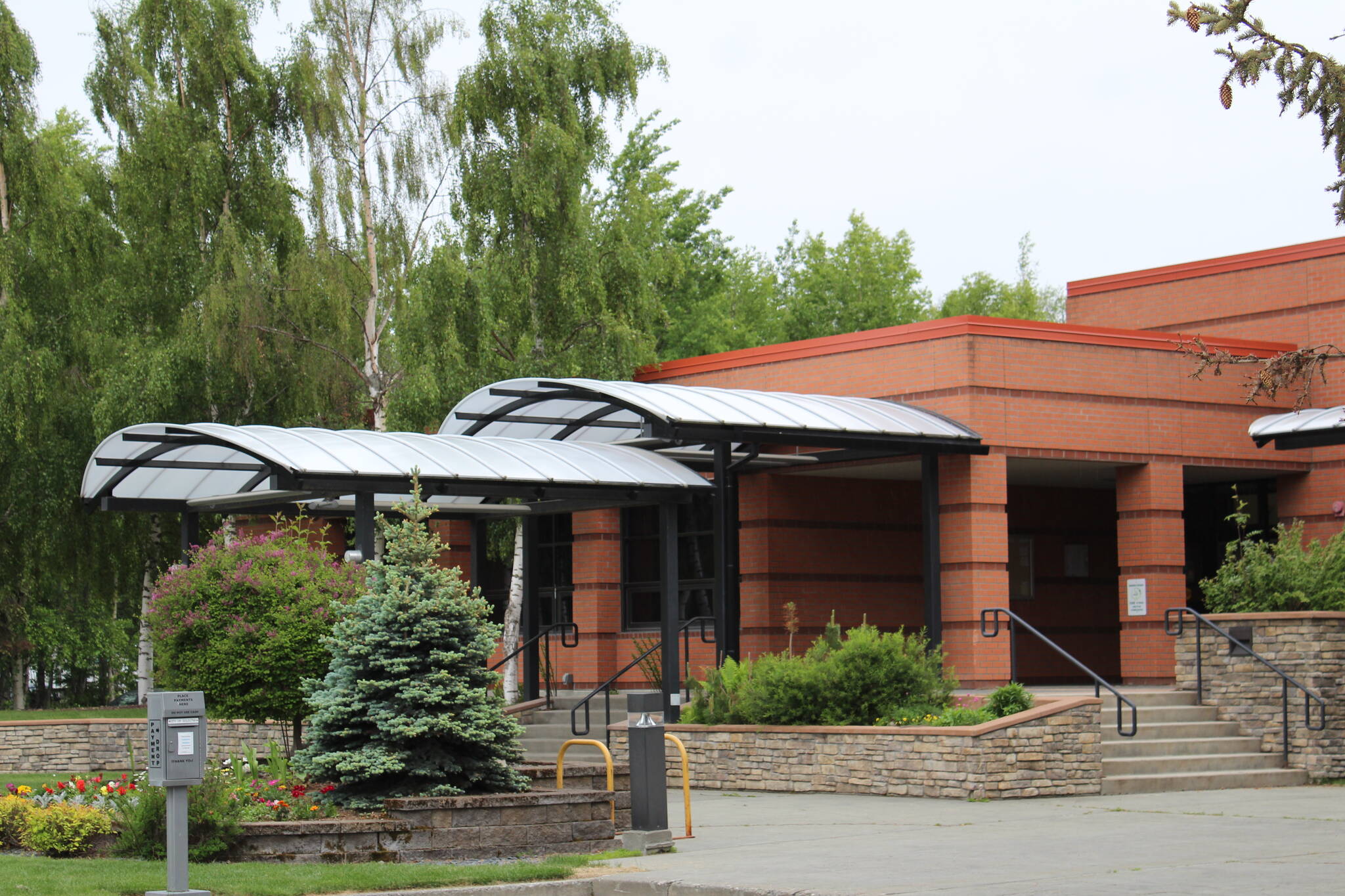People booking lodging accommodations in Soldotna will have to pay an additional 4% in taxes starting in 2025, following the Soldotna City Council’s approval Wednesday of a citywide bed tax. The tax applies to all hotels, motels, inns, lodges and short-term rentals, such as Airbnbs and Vrbos.
The ordinance defines lodging as a structure or portion of a structure that is occupied or intended for occupancy by guests for dwelling or sleeping purposes. All such businesses will be required to obtain a certificate of registration from the city and are subject to a $250 fine if that registration is not obtained.
All revenue received by the tax will be deposited in a fund designated to promote city tourism. Ordinance sponsor Lisa Parker cited long-standing discussions about such a tax and an anticipated boost in city tourism as being among the reasons she brought the legislation forward. It is estimated that the tax would have brought the city an additional $243,000 during the most recent fiscal year.
“I want to start off by emphasizing this is not a tax on businesses, but it is a tax on visitors who stay in our local lodging establishments,” Parker said Wednesday. “It’s not a tax on local residents, it’s a tax on visitors. It’s been interesting in talking to people about this issue, as a lot of people think that Soldotna already has a lodging bed tax.”
Of the five people who testified on the ordinance during Wednesday’s council meeting, four said they opposed the tax.
Representatives from the Aspen Hotel, which has publicly opposed the tax alongside the Kenai River Lodge, said implementation of a new tax could cause people to seek lodging elsewhere. Employee Kelly Johnson said that, for people booking a hotel room, a 4% tax can quickly add up.
“That can quickly become an expense that myself, you or any one of us could probably not afford out of pocket,” Johnson said. “ … Again, they’re likely to stay in neighboring communities like Kenai and we would lose out on that.”
Steve Manley, who testified in support of the tax, said that taxing visitors will help enhance the amenities that those visitors come to Soldotna to enjoy.
“I think the city does a tremendous job with enhancing our community with trails and parks and the sports center,” Manley said. “Visitors coming to the town to support that effort will help enhance all of those efforts further.”
Council member Dave Carey — the only person to vote against the tax — questioned the necessity of a bed tax, which he said may send a message that certain businesses or people aren’t wanted in Soldotna. He referred to the tax as theft and said the individuals who would be impacted could perceive the new lodging-specific tax as a “punishment to correct past injustices.”
“Which other industries and groups are going to be taxed higher because of their success or because they have decided that Soldotna is their desired home?” Carey asked. “Might some see this as a statement that Soldotna does not want people doing business here?”
Council members approved three amendments to the ordinance, all of which were introduced by council member Jordan Chilson and all of which refined the section of the ordinance that says what the bed tax revenue can be used for.
The first expanded the types of activities the tax revenue can be spent on to those itemized in the ordinance, including the Soldotna Visitor Information Center, advertising and promotion of the City of Soldotna and support for landscaping and visual improvements within city limits, among others.
The second amendment clarified that the bed tax revenue may not be used for maintenance of city facilities like the Soldotna Regional Sports Complex, and the Soldotna Field House. Chilson said there’s been concern about whether the city will use the tax revenue to cover basic operating expenses, which he said includes maintenance of city facilities.
“I think maintenance would definitely be categorized as an operational expense,” he said. “If we’re going to use this money, it needs to be used for something that’s new and enhances our city.”
The final amendment articulated that, while bed tax revenue can be used to pay for bond debt service, it may only be used for bond debt incurred in support of the kinds of tourism enhancement projects described in the ordinance. The revenue could be used, for example, to help pay for the bonds the city took out for the Soldotna Field House, but not for a project unrelated to tourism enhancement.
Council members passed the ordinance, which takes effect Jan. 1, 2025, by a vote of 5-1. Wednesday’s council meeting can be streamed on the City of Soldotna’s YouTube channel.
Reach reporter Ashlyn O’Hara at ashlyn.ohara@peninsulaclarion.com.

